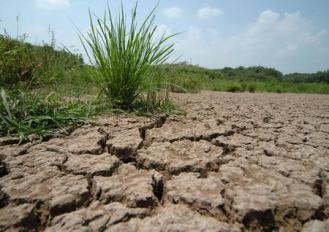 Water shortages will be the world’s most pressing problem in the next decade, compounded by a growing global population, Britain’s chief scientist John Beddington said on Tuesday.
Water shortages will be the world’s most pressing problem in the next decade, compounded by a growing global population, Britain’s chief scientist John Beddington said on Tuesday.
Climate change is forecast to disrupt rainfall patterns, leading to more severe droughts and floods, posing problems for the supply of fresh water.
The world’s population of about 6.6 billion is forecast to rise by 2.5 billion by 2050, while growing wealth and urbanization is fuelling demand for water.
The U.N.’s climate panel says 90-220 million people in Africa risk facing extra stress on water supplies by 2020 due to climate change.
That will have knock-on effects for farms which are stoking the problem by depleting groundwater in dry countries, environmentalists say.
“The availability of fresh water, I believe, is probably going to be the first problem that has got to be addressed,” said the British government’s chief scientific adviser.
“Agriculture is intimately linked with that, but I would say water is probably going to be more concerning over the next 10 years,” he said.
A welter of factors could combine to stoke risk, he said.
“Population growth, an increase in wealth, urbanization, and … climate change, all of those are going to present really big problems to humanity,” he told the Reuters Global Climate and Alternative Energy Summit.
He also said climate tipping points should be a priority for research.
Tipping points refer to warming which triggers a natural reaction, in turn reinforcing climate change. For example, warming of the Arctic causes frozen vegetation to melt and rot, releasing the greenhouse gas methane which in turn could accelerate global warming.
“We need to be … carefully monitoring these to see if there are these tipping points and we need then to address them. That needs more effort from the international community,” Beddington said.
Water security fears, rising demand for food and a drive to curb greenhouse gas emissions all posed commercial opportunities, he added.
With regard to low-carbon technologies, countries should focus on their particular advantages in natural resources and manufacturing, he said. In the case of Britain, these included offshore wind, nuclear power and carbon capture and storage.
“It is quite clear these are the technologies that are going to be important,” in addition to energy efficiency, he said.
Beddington urged ministers to spare the science community from British government spending cuts, to be detailed in a spending review on October 20.
“It’s going to be an increasingly competitive world and the fact we have some of the best, most productive scientists and engineers is an enormous asset.
“I’d be absolutely delighted to see a zero cut,” he said.


